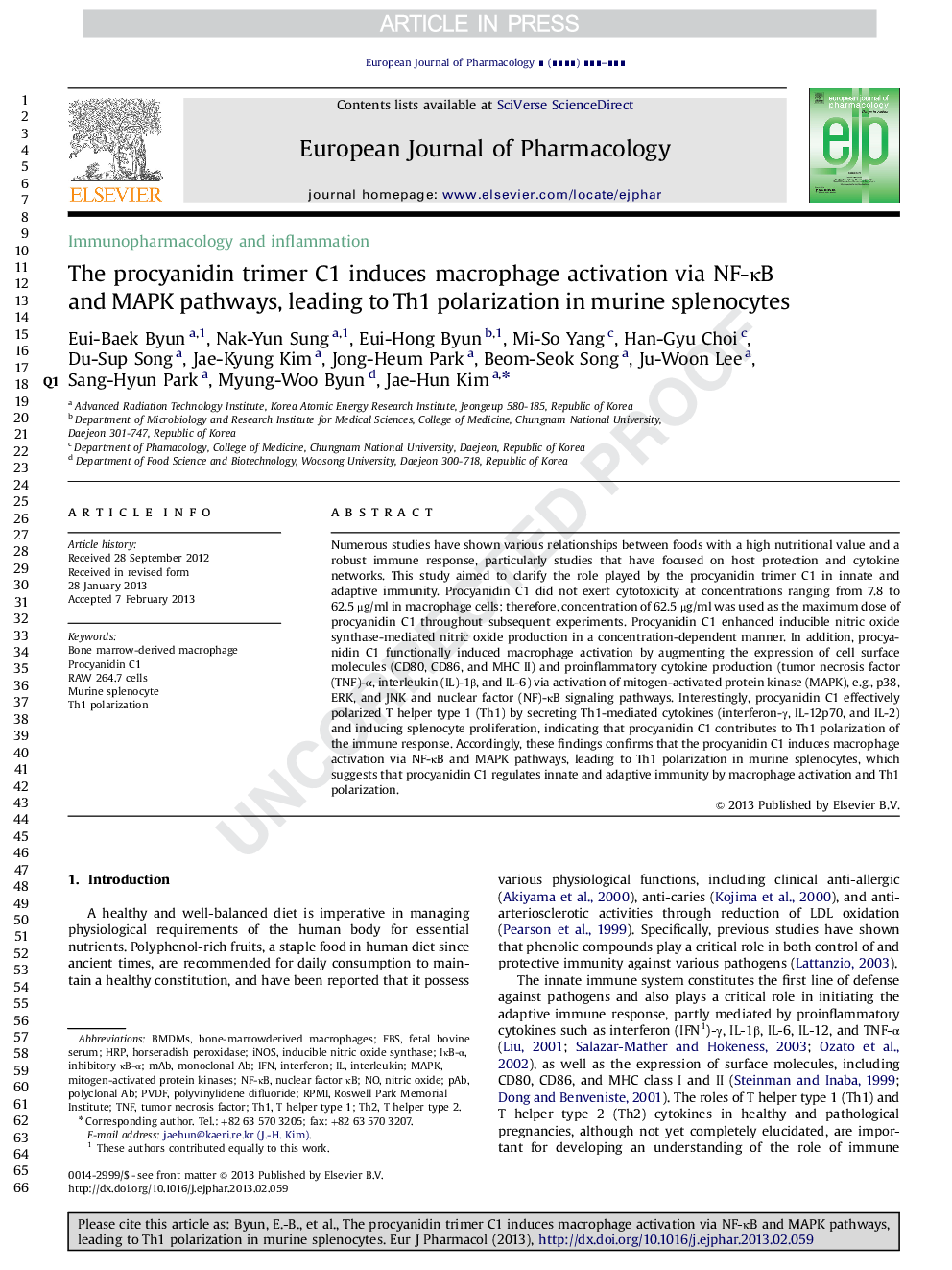| Article ID | Journal | Published Year | Pages | File Type |
|---|---|---|---|---|
| 5828624 | European Journal of Pharmacology | 2013 | 11 Pages |
Abstract
Numerous studies have shown various relationships between foods with a high nutritional value and a robust immune response, particularly studies that have focused on host protection and cytokine networks. This study aimed to clarify the role played by the procyanidin trimer C1 in innate and adaptive immunity. Procyanidin C1 did not exert cytotoxicity at concentrations ranging from 7.8 to 62.5 μg/ml in macrophage cells; therefore, concentration of 62.5 μg/ml was used as the maximum dose of procyanidin C1 throughout subsequent experiments. Procyanidin C1 enhanced inducible nitric oxide synthase-mediated nitric oxide production in a concentration-dependent manner. In addition, procyanidin C1 functionally induced macrophage activation by augmenting the expression of cell surface molecules (CD80, CD86, and MHC II) and proinflammatory cytokine production (tumor necrosis factor (TNF)-α, interleukin (IL)-1β, and IL-6) via activation of mitogen-activated protein kinase (MAPK), e.g., p38, ERK, and JNK and nuclear factor (NF)-κB signaling pathways. Interestingly, procyanidin C1 effectively polarized T helper type 1 (Th1) by secreting Th1-mediated cytokines (interferon-γ, IL-12p70, and IL-2) and inducing splenocyte proliferation, indicating that procyanidin C1 contributes to Th1 polarization of the immune response. Accordingly, these findings confirms that the procyanidin C1 induces macrophage activation via NF-κB and MAPK pathways, leading to Th1 polarization in murine splenocytes, which suggests that procyanidin C1 regulates innate and adaptive immunity by macrophage activation and Th1 polarization.
Keywords
Th1 polarizationBMDMsIκB-αT helper type 2Th2Th1PABNF-κBRPMIiNOSHRPpolyclonal AbPVDFT helper type 1mAbTNFFBSMAPKmonoclonal AbRAW 264.7 cellsinterferonIFNinterleukinpolyvinylidene difluoridefetal bovine seruminducible nitric oxide synthasetumor necrosis factornuclear factor κBRoswell Park Memorial Institutebone marrow-derived macrophageNitric oxideHorseradish peroxidasemitogen-activated protein kinases
Related Topics
Life Sciences
Neuroscience
Cellular and Molecular Neuroscience
Authors
Nak-Yun Sung, Mi-So Yang, Du-Sup Song, Eui-Baek Byun, Jae-Kyung Kim, Jong-Heum Park, Beom-Seok Song, Ju-Woon Lee, Sang-Hyun Park, Hyun-Jin Park, Myung-Woo Byun, Eui-Hong Byun, Jae-Hun Kim,
